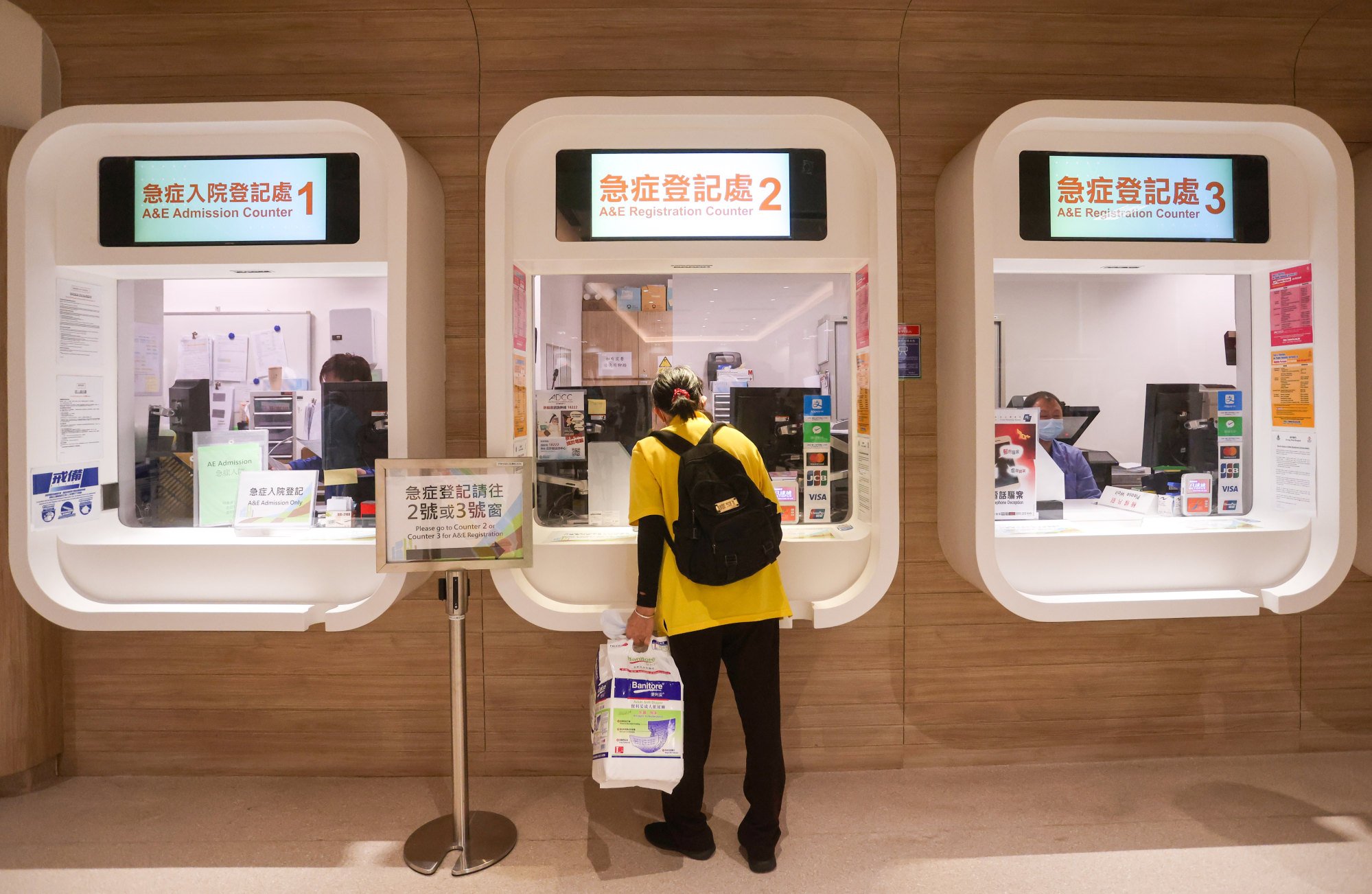
Hong Kong authorities to set up task force to look into hospital power disruption
- Kwong Wah Hospital’s backup electricity supply ensured no major operations were affected during 50-minute disruption, health minister says
Kwong Wah Hospital in Mong Kok said on Thursday that its power supply was interrupted at about 7pm the evening before, forcing it to transfer a procedure already under way to a different operating theatre.
It said late at night that the non-emergency surgical services affected earlier could be resumed gradually on Friday.
Secretary of Health Lo Chung-mau stressed the hospital’s backup electricity supply ensured major operations being performed at the time of the disruption were not affected.
“Non-urgent surgeries” in some operating theatres had to be suspended while the power supply system was checked, he added.
“The Hospital Authority, especially Kwong Wah Hospital, will investigate the incident and set up a task force to find out the reasons behind the power failure in the operating rooms,” Lo said. “I also want to emphasise that [public] hospital services must be of very high quality in terms of hardware and other aspects, whether it is power supply or all other equipment.”
The building, which cost more than HK$10 billion (US$1.3 billion), opened in April last year, the first phase of a major redevelopment of the hospital.
An authority spokesman said the hospital had “immediately” arranged emergency repairs and that the electricity supply to the operating theatres resumed at about 7.50pm.
“During the electricity supply interruption, one operation needed to be transferred to another unaffected theatre,” he said.
The hospital’s spokesman said on Thursday night that another 23 non-emergency operations that were set to take place in the morning were postponed. Two non-emergency operations had to be diverted to other theatres and both were successfully completed.
“A faulty control component was found in the uninterruptible power supply used for the level-three standby power supply of the hospital, disrupting the operation of the level-three standby power system in the operating theatre,” he said.
He said the faulty electrical component was replaced the next day, and an initial investigation was conducted by the contractor.
He said the Electrical and Mechanical Services Department was conducting independent tests to ensure the system’s safety and stability after the repair.

Kwong Wah Hospital apologised to the affected patients and said it had reported the incident to the authority’s head office.
One family member of a patient told local media the person was undergoing an operation at the time of the power disruption. Doctors had already made an incision, which was temporarily sutured for the transfer, he added.
“There are certainly concerns whether the power disruption affected the operation,” he said. “I hope the relevant departments will follow up on this matter.”
Scott Leung Man-kwong, a lawmaker representing the Kowloon West geographical constituency, said authorities should investigate how the electrical failure could occur so soon after construction, calling the incident “unacceptable”.
“A reliable power system is crucial to the hospital’s operation given that the redeveloped Kwong Wah Hospital introduced many new information technologies to support medical work, such as the 5G modular operating theatre to enhance remote medical applications,” Leung said.
Tim Pang Hung-cheong, a patients’ rights advocate with the Society for Community Organisation, stressed that a stable power supply at a hospital was a basic requirement given the plethora of electrical medical devices.
“For example, when an operation reaches a critical stage, a sudden disruption may prolong the surgery,” he said. “It can cause immediate life risks to patients suffering from a haemorrhage or those in intensive care who have to rely on auxiliary equipment.”
Pang urged the authority to work with the electricity supplier, CLP Power, to determine the cause of the disruption.
Engineering expert Lo Kok-keung suspected that some of the hospital’s instruments might have experienced electrical leakages, tripping the circuit breaker at some point, and called on the government to pinpoint the locations.
The 17-storey complex, with a combined floor area of 145,000 square metres, features an accident and emergency unit 2.6 times bigger than the old one and offering 40 ward beds.


